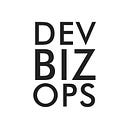For the Love of Enterprise Software
Let’s talk about the joys of Wordpress for a moment. Why Wordpress? Because it runs 27% of the Internet, which becomes 60% when you take a slice of all the websites that are based on a Content Management System (CMS).
Many of those Wordpress sites are powering the externally facing Internet presence for global enterprise companies like Reuters, UPS, IBM, and others. Which might mean that Matt Mullenweg, the CEO of Wordpress, would be a big fan of enterprise software?
“Enterprise software has always sucked,
but now people are complaining about it more.”
Nope, not a fan. Not at all.
He has a good point though, most of the software we give users is downright awful. I spent a good chunk of my life customizing CRM (sales & customer service software), and lived through bad user experiences, confounding functionality, broken workflows, and abysmal data quality issues.
Sometimes you use software because you have to, and sometimes you use software because you love using it. When your boss has to badger you to use the tool or your pay is tied to usage, you use it with the enthusiasm of breathing in car exhaust from the tailpipe. When you use something that makes what you do easier, faster, and better, then you value and trust the tool.
We see this clearly in the developer tools market. For the longest time, the tools were fairly rudimentary and often only had the most basic of command line interfaces. Then more complex tools came in with visual user interfaces and more features. However these interfaces were clunky and complex to setup. Developers were spending more time in documentation and training sessions than actual coding and shipping code faster.
In the past few years, we have been experiencing a Renaissance in the market for developer tools built for enterprises. Tools like Slack, GitHub, and Trello demonstrate how tools that developers love can eventually find their way into companies. Because developers are familiar with these tools from their own individual projects and person usage, the tools experience higher organic growth, stickier adoption, and more frequent engagement.
Are you forcing developers to use something you chose or allowing developers to make the choice? What makes the most impact in terms of tool adoption?
What is the chinese term for “StackOverflow”?
Interesting to think about translating technical terms and company names. And how cool is it that there is a Q&A community for Mandarin Chinese?
We help IT leaders in enterprises solve the cultural challenges involved in digital transformation and move towards a community based culture that delivers innovation and customer value faster. Learn more about our work here.
